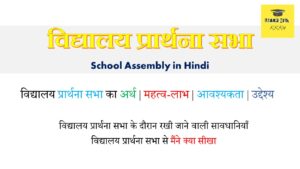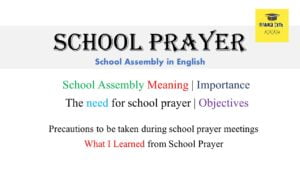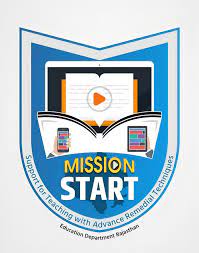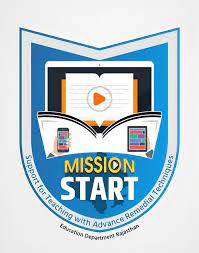National Curriculum Framework (NCF 2005)
The National Curriculum Framework 2005 was published to guide institutions and schools to encourage holistic development of children and move away from textbook-centric education. National Curriculum Framework 2005
Let us understand the framework and objectives of the National Curriculum. ncf 2005 b.ed notes pdf in english
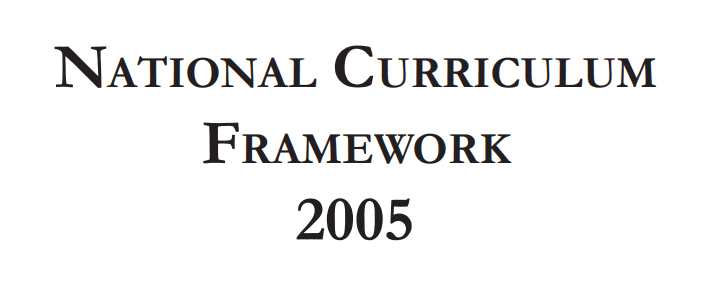
National Curriculum Framework (NCF 2005)
National Curriculum Framework In English
National Curriculum Framework (NCF 2005)
A curriculum outline is a standardized format or organized plan or learning outcome that drives the curriculum for courses. Its purpose is to define clear outcomes that students want to achieve or know in their course.
It has been introduced into new educational approaches such as outcomes-based education or standards-based education reform designs.
A curriculum framework is a set of rules or standards or learning outcomes that state expectations of students as to the content to be learned. It gives a standard of what they should know and be able to do after completing the course. It is a part of standards based reform design or outcome based learning.
- To promote holistic development of the child encompassing academic, emotional, physical and emotional aspects.
- To enable students to develop intellectual quotient by providing them various opportunities
- To create an environment conducive to quality education where students will be encouraged to participate in various activities
- Promote creative thinking skills by facilitating various activities and giving freedom to express individual ideas within the classroom
- In response to multi-cultural characteristics, schools should ensure that no student is discriminated against on the basis of caste or religion and social status.
Objectives Of National Curriculum Framework – NCF 2005
Objectives of National Curriculum Framework 2005 – Objectives of NCF 2005
- Introducing the concept of learning without too much load by reducing the syllabus
- All children should get quality education without any discrimination
- Curricular methods should be in line with secularism, social justice and equality
- Strengthening the national education system in the society
Important aspects covered in the NCF 2005 include children’s interest in learning, and feeling valued and heard. The school and curriculum should create a conducive classroom environment and make students feel safe and appreciated. They have to ensure the physical, mental and social development of the student.
National Curriculum Framework NCF 2005 in english
Guiding Principles of National Curriculum Framework – NCF 2005
Guiding Principles of National Curriculum Framework – NCF 2005
NCF 2005 states 5 guiding principles for curriculum development of students-
Connecting learning to real-life examples outside school
Ensuring diverse methods of learning rather than rote methods
Enhancing the curriculum to provide knowledge and experience beyond textbooks
Improving test-taking flexibility and integrating them with classroom school life
To foster a paramount identity informed by concerns within the country’s democratic politics.
Important Components Of National Curriculum Framework (NCF 2005)
Following are the important components of National Curriculum Framework…
1: Social Context
Students from disadvantaged sections of society living in rural areas are in particularly vulnerable situations due to inadequate educational systems. Ongoing gender discrimination within families is also a big problem as it acts as a barrier for girls who want to go to school. But they are not able to get education because their parents believe that there is no real value in educating girls. After all, they will get married eventually.
On the other hand, increasing commercialization of education has only helped in widening the gap in educational needs. While high-cost private schools can be attended by children of the urban elite, others who are from working-class families can afford schools with average and sub-standard curriculum.
The social context of education in India thus indicates several challenges that should be included in the framework. The National Curriculum Framework for Schools emphasizes that schools should implement pedagogical practices. Such as critical awareness and openness to engaging with different communities to share ideas and exchange curricular decisions.
2: Learning and Knowledge
Learning should be facilitated in a way that it attracts the attention of the students, new methods should be explored instead of being limited to age-old traditional methods of education. An educational ERP software can be introduced to reduce the hassles in the teaching-learning journey.
3: Predominance of active learners
Schools and institutions are the medium through which students come to know about the society, their culture and the world around them. This formal process of learning is important because it helps develop knowledge, but if the methods are outdated and uninspiring the possibilities for understanding and connecting with the world are diminished.
Child-centred pedagogy should be implemented as it will encourage children to express their opinions and experiences through active participation.
Usually, when children answer a question asked by the teacher they simply repeat the teachers answers, the curriculum should be designed in such a way that it engages them in finding their voice and nurturing their curiosity. A school ERP system can be useful for designing an effective curriculum.
4: Learners in Context
Creating a learning environment that is based on fear, excessive discipline and stress can only lead to inadequate learning. Additionally, curriculum, workload and exam-related stress can create problems later on, all of which should be addressed appropriately.
Along with education, physical development should also be a priority and for this, participation in formal, informal sports, yoga and other sports-related activities should be encouraged.
5: Growth and Learning
Keeping in mind that the period from infancy to adulthood is a period of growth and change, the National Curriculum Framework for school education also takes into account the holistic development of students.
The pace of learning should be such that students can understand the basic concepts as per their understanding. An important aspect to note is that the teacher should ensure that he/she provides a variety of challenges as passive learning is counter-productive.
6: Syllabus and Practice
Collaborative learning should be facilitated within the classroom which will provide opportunities for multiple sharing and exchange of ideas and opinions. Various educational tools like school ERP with online assessment system should be implemented for rich learning experience:
Holding interactive discussions and quiz sessions where children can ask questions and then answer those questions based on what they learned in school and their personal experiences.
Intelligent guessing should also be encouraged in which the student has the freedom to share his/her point of view on a matter.
Active participation should be encouraged through various classroom activities such as inquiry, exploration, debate, application and reflection
7: Critical Pedagogy
Teacher and student interaction within the classroom is important as it helps in improving collaborative learning. The role of the teacher is to create a safe and inclusive environment for students so that they can express themselves freely without worrying about being criticized.
It is noteworthy to mention that when teachers and students share and reflect on their personal experiences it helps in learning about different social realities.
Curricular Area, School Stages, And Assessment
Curriculum areas, school stages, and assessment
The key areas related to curriculum planning have remained the same; It is important to reevaluate these areas in detail and verify whether new changes and additions are aligned with the context of emerging societal needs.
1.Language
The National Curriculum Framework for schools emphasizes the fact that language teaching should be multilingual with students being taught in a three-language structure.
Mother tongue should be preferred as the first language, in Hindi speaking states the third language should be modern English; Hindi should be taught in non-Hindi speaking states because it is the national language.
2.Mathematics
The higher goal of mathematics education is to help the child think and reason mathematically, making assumptions based on logical reasoning. The primary goal is to:
Help children understand the basic mathematical concepts of algebra, arithmetic, geometry and trigonometry.
To provide them with an idea of how mathematical concepts lead to structure, generalization and abstraction.
Mathematics is often considered complex and difficult to understand, but mathematical concepts can be easily taught with the help of different representations.
3.computer
The advancement of modern technology has urged institutions and schools to focus on educating students about the use of computers. But it is important to note that schools lack the infrastructure to impart adequate knowledge in this regard.
Therefore the school body or authority should look for viable and innovative alternatives in case of shortage of required funds. Connectivity and software technologies are available that are suitable for rural and urban schools.
4 science
Science plays an important role in educating children in that they can distinguish between facts and fiction; Pedagogy should be designed in such a way that it involves activities, observations and experiments.
Instead of information-based learning, teachers should encourage an active approach to science and how it connects to the world around them.
5.Social Science
Subjects like history, geography, political science, economics, sociology and anthropology are important as they help in educating the child about his social reality. A multidisciplinary approach should be indicated as it helps to collectively create a stronger sense of human values such as trust, mutual respect, freedom and respect for diversity.
6.Art Education
The arts have never been given any importance and are often restricted to “useful hobbies or leisure activities” and are used only as a tool to demonstrate the grandeur of the school during educational programs. . Now art should not be ignored, but work should be done towards enhancing the artistic abilities of children.
7.Health and physical education
Undernutrition and communicable diseases are some of the most important health problems that children in India suffer from. Keeping this aspect in mind the school authorities should ensure that the vulnerable social groups and girls are taken care of and given proper care. This subject aims to provide an understanding of the overall importance of health and physical fitness.
8.Work Education
Work education is concerned with incorporating activities that will ultimately help students develop essential life skills such as problem-solving, creative thinking, situation-based analysis and effective communication.
Institutions should provide adequate opportunities in terms of pedagogical strategies to help students develop these skills from an early age.
9.Education for peace
The world is constantly amidst violence, chaos and conflict, the responsibility of the school is to ensure to provide value-based education despite these unpleasant realities.
Schools must ensure that there is no hint of violence in their teachings. It is important to incorporate tolerance, justice, intercultural understanding and civic responsibility into the educational structure.
FAQ’s
What Is Curriculum Framework?
A curriculum framework is a well-organized plan or standard that defines what students should know and be able to do in terms of clear, fixed standards. Curriculum design is part of outcome-based education reform design.
What Is Curriculum Framework?
What Is The National Curriculum Framework (NCF 2005)?
The National Curriculum Framework 2005 (NCF 2005) is the set of guidelines for textbooks, curriculum, teaching practices for schools in India. It was published by the National Council of Educational Research and Training (NCERT) in India in 2005.
What Is The National Curriculum Framework (NCF 2005)?
What Are The Features Of The National Curriculum Framework 2005?
What Are The Features Of The National Curriculum Framework 2005?
- Improving school and classroom environment
- Improve learning and knowledge process
- perspective correction
- Curriculum and Assessment Reforms
- systemic reform
What are the major problems in the National Curriculum Framework 2005?
- More emphasis on marks and grade system
- heavy burden on teachers
- Students’ approach to learning based on rote learning
- Students do not understand what they are learning
- Shortage of supervisory staff in institutions
know this also
Similarly, you will get B.Ed. To see all the updates and important information related to B.Ed. Complete information about all the academic and co-scholastic activities related to the program along with their PDF and other related material is available – to see all this, visit B.Ed. Visit the page – CLICK HERE
lesson plan telegram group join for more – click here
awareness campaign ; jagrukta abhiyan in english – Effective campaign
jagrukta abhiyan in hindi ; awareness campaign ; Effective campaign
Vidyalaya Prarthana Sabha , Vidyalaya Prarthna Sabha | School Prayer in hindi | School Assembly in Hindi [ Motivational , Hope ]
School Prayer in english | School Assembly in english [ Motivational , Hope ]
Mission START Program 2023-24 – Weekly Smart Class All About In English free
Mission START Program Weekly Smart Class in Hindi मिशन स्टार्ट कार्यक्रम क्या हैं 2023-24 [ innovative ]
https://ncert.nic.in/pdf/nc-framework/nf2005-english.pdf



